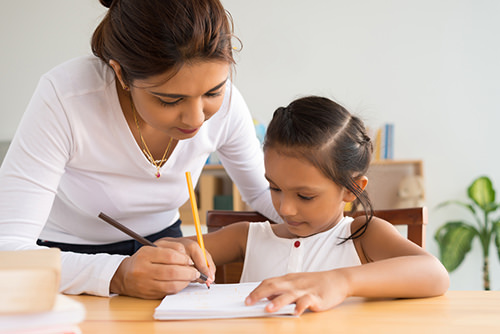Time parents spend with children key to their academic success
It turns out that the time parents spend with their children play a huge role in their educational achievements.

Washington D.C: It turns out that the time parents spend with their children play a huge role in their educational achievements.
A new study saw researchers’ analysing data on children in Israel who lost a parent through death or divorce and found that when it came to measuring a child’s academic success, the educational attainment of the surviving or custodial parent had more impact than the educational level of the parent who died or left the home.
Also Read: Here are 6 museums in Philadelphia you must visit
The study further found that the longer a parent was absent, the less impact his or her education had on the child's success.
Speaking about it, Bruce Weinberg, co-author of the study said, “In the ongoing debate over what helps children succeed academically, we show that genetics is not the only major factor.”
Weinberg further added, “It is also about the time that parents spend with their children.”
The research was conducted by Eric Gould and Avi Simhon of Hebrew University in Israel, as well as Weinberg.
The study has been accepted for publication in the Journal of Labor Economics and will be published Feb. 4, 2018 on the website of the National Bureau of Economic Research.
Also Read: Looking for maintaining healthy diet? Start your meal with high-calorie desserts
The study involved more than 22,000 children in Israel who lost a parent before the age of 18 and looked at whether these children passed the "matriculation exam," a high-stakes test required to attend college. About 57 per cent of high-school students in the country pass the test.
Also Read |
High education reduces the risk of heart attack
The researchers started the study by looking at children who experienced the death of one parent, Weinberg said, adding, “We found that if a mother dies, her education becomes less important for whether her child passes the test, while at the same time the father's education becomes more important. If a father dies, the reverse happens.”
Also Read: Healthy diet can beat symptoms of depression
In other words, Gould said, parenting matters. He added, “Student success is not coming just from smart parents having smart kids.”
Study results rejected the argument that the parents' income is really what helps the children of the highly educated succeed academically.
If that were so, then losing a father should hurt children academically more than losing a mother because fathers tend to earn more.
Weinberg added that they found that a loss of a mother, who tends to spend more time than the father with her children, had a bigger effect than loss of a father in our study.
The study found that the negative effect on academic success of losing a mother can at least be partially minimised if the child gains a stepmother. If the father does not remarry, the effect of the loss is more acute: No one can compensate for the loss of the mother except for the father.
Also Read |
Sex education before college lowers risk of sexual assault
Also Read: People with chronic disease not indulging in healthy physical activity
However, the study did not find any differences in academic success for children whose mothers remarried after their father died, versus those who did not.
That may be because mothers' education levels generally had more impact on their children's success than that of fathers because of the more time moms spend with their children.
Furthermore, results showed that mothers’ education was more closely linked to children’s academic success" in larger families because women with more children spent more time with their children and less time working outside the home, according to findings.

Overall, the effects of losing a parent were stronger on girls than on boys, the study showed.
Also Read: No hard and fast rule when it comes to resuming sexual activity after childbirth
Similar results were also found with children whose parents had divorced. The educational level of the mother - whom the child typically lived with - had a larger effect on academic success than did the education of the other parent, Weinberg said. (ANI)
 Dynamite News
Dynamite News 


